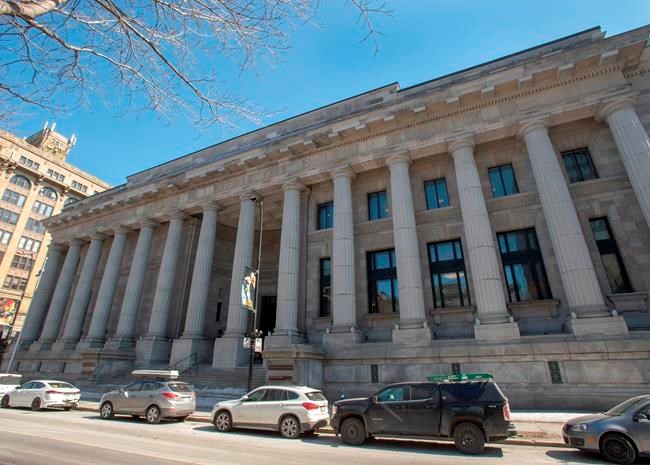MONTREAL — The heads of major Quebec newsrooms penned an open letter Wednesday denouncing a criminal trial involving a police informant held entirely in secret and kept off the official court docket.
The existence of the trial only became public because the police informant accused in the case appealed his or her conviction, and the appeals court issued a heavily redacted ruling in late February critical of the lower court proceedings.
A letter signed by the newsroom leaders of the province's major media outlets, including The Canadian Press, stated their indignation and deep concern over the “shadow trial” revealed in a judgment rendered by the Quebec Court of Appeal, which was first published by La Presse.
"It is unacceptable that such a trial could take place in Quebec without the public even being advised of its existence, let alone in which court it took place and the identities of the judge and lawyers involved," the letter said, which was addressed to the chief justices of the Quebec court, Superior Court and Court of Appeal.
"In short, the trial took place in the utmost secrecy, the decision maker in the lower court wiping out with the stroke of a pencil centuries of democratic advances and sending us back to the sad era of the Star Chamber — that arbitrary court created by Henry VII in the 15th century."
The case involves a police informant who was convicted of participating in a crime that he or she had initially revealed to police. The informant claimed he or she was a victim of an abuse of process, but the lower court judge disagreed.
The Appeal Court panel, however, sided with the informant and stayed the conviction and the legal proceedings. In a decision date Feb. 28, a three-member Court of Appeal panel wrote the initial trial was "contrary to the fundamental principles that govern our justice system."
Its ruling noted that the case had no docket number, that witnesses were questioned outside the courtroom and that "no trace of this trial exists, other than in the minds of the individuals implicated.'' The date of the trial was kept secret, as were the location of the alleged crime and the police force involved.
"It cannot be overstated the importance of the open court principle in this country,'' Court of Appeal justices Marie-France Bich, Martin Vauclair and Patrick Healy wrote in the introduction to their ruling.
"The court is of the opinion that if trials must protect certain information disclosed therein, a procedure as secret as the present one is absolutely contrary to modern criminal law and to the respect of the constitutional rights not only of the accused, but also of the media, and it is equally incompatible with the values of a liberal democracy,'' they added.
Later Wednesday, Justice Minister Simon Jolin-Barrette said in a statement the leadership of the Quebec court and Superior Court share similar concerns about the case. He said that while he doesn't have details about what happened, he said he has been told Quebec Crown prosecutors weren't involved.
Jolin-Barrette said he has asked prosecutors to ask the Court of Appeal to request that information in the case be made public, such as the identity of the judge and lawyers involved and the orders delivered.
The media letter stated that exceptional requests from prosecutors and defence lawyers are being granted more frequently, a practice it said is eroding the principle of judicial transparency. Quebec newsrooms called for an in-depth review of court practices to ensure such a trial doesn't occur again.
"What’s at stake is public confidence in the judicial system," the letter said. "And that has been significantly undermined by the way in which this trial was held."
Jolin-Barrette told the legislature on Wednesday that the basic principle in democracy is that justice be done in full public view.
“Justice must be rendered publicly and it is not acceptable for such a situation to occur," Jolin-Barrette said during question period. He said there are certain "exceptional circumstances" where publication bans or other orders are needed, but he said they must be balanced with criteria outlined in the Criminal Code.
He said he wouldn't comment further on the case because the period during which an appeal to the Supreme Court of Canada can be made has not expired.
This report by The Canadian Press was first published March 30, 2022.
Sidhartha Banerjee, The Canadian Press

